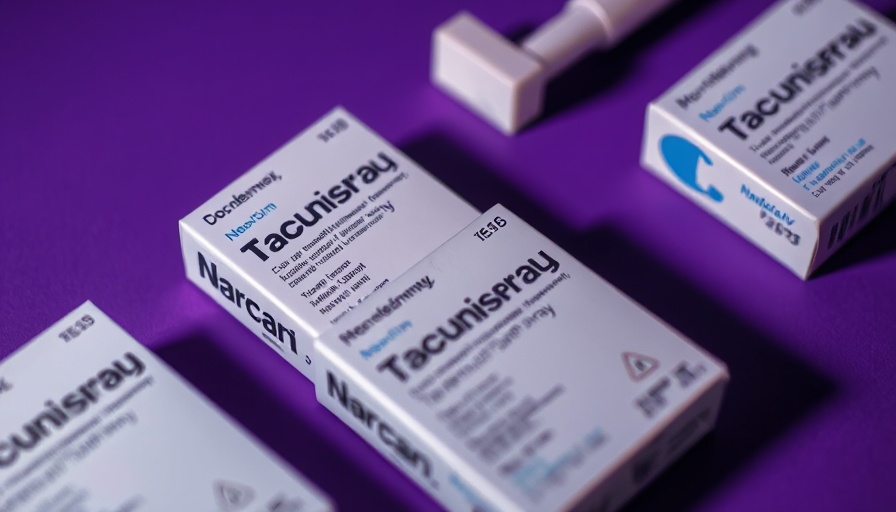
Florida's Progress in the Battle Against Drug Overdoses
In a heartening shift for public health in Florida, the latest report from the Florida Department of Law Enforcement shows significant declines in drug overdose deaths, signaling potential progress in combating the opioid crisis. Between January and July 2024, total drug-related deaths decreased by 10% compared to the previous year. With nearly 3,000 opioid-related fatalities marking a 19% drop, it's a statistic that offers a glimmer of hope in an ongoing battle against addiction.
Fentanyl and Opioids: A Noteworthy Decline
A critical look at the report reveals that many drugs, including the notoriously devastating fentanyl and heroin, have also shown a downward trend in fatalities. While fentanyl continues to dominate the market as a potent opioid responsible for the majority of overdose deaths, the decrease highlights the importance of harm reduction strategies and community outreach initiatives.
The Role of Community Outreach
Local outreach programs, like those led by Matea Kearns of the Recovery Epicenter Foundation, have been instrumental in addressing the crisis on the ground level. Kearns' distribution of Narcan—an overdose-reversing drug—at public locations, such as St. Petersburg’s Grand Central Bus Station, exemplifies proactive measures being taken. As a peer specialist who has overcome her addiction, she serves as a beacon of hope, resonating deeply with those who are struggling.
Community Engagement: Breaking Down Barriers
Kearns emphasized the importance of trust when engaging with individuals on the brink of recovery. By establishing rapport, she helps those in need recognize their own potential for change. "When they're ready, they'll come to me and say, 'you know what, I want this way of life,'" she shared, showcasing her commitment to creating a supportive environment for healing. Her story of five years of sobriety illustrates that recovery is possible, and those who seek help can reshape their lives.
The Larger Context: National Trends and Local Responses
This trend in Florida reflects broader national efforts to curb addiction and overdose deaths through a combination of policy changes, funded recovery programs, and community initiatives. These strategies are essential in regions heavily impacted by opioids and illustrate how local and state governments are addressing the epidemic strategically. The need for collaboration among healthcare providers, law enforcement, and community organizations has never been more critical.
Looking Ahead: Sustaining Progress
While current statistics indicate a positive trend, experts urge caution against complacency. The battle against drug overdose requires sustained effort and constant adaptation to emerging challenges, such as new drug formulations and the cyclical nature of addiction. Ongoing education about risks, availability of recovery resources, and support systems will be vital in maintaining these gains.
Conclusion: A Call to Action
As Florida experiences these promising drops in overdose deaths, it’s essential for communities to continue fostering supportive environments for recovery. Each success story fuels the fire for change, but it requires collective action from all sides—government, healthcare, and community members—to ensure that trends continue in a positive direction. For those looking to help, volunteering at local recovery programs or advocating for supportive policies can make a difference in someone’s life.
 Add Row
Add Row  Add
Add 



Write A Comment